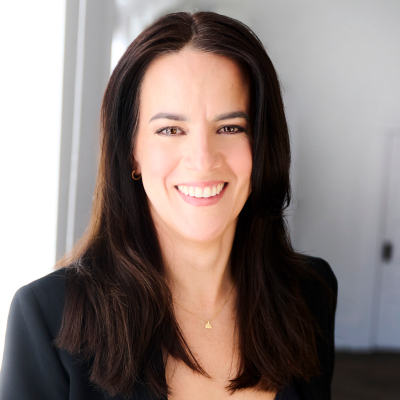This is the final article in a four-part series by Elke Rubach, president of Rubach Wealth, about family enterprise founders who are contemplating an exit. In this series, Rubach explores the “quiet fatigue” that founders rarely admit to, why holding on too long can damage wealth and relationships, how silence can breed entitlement, and how to redefine retirement.
For previous generations, retirement was an ending. Family enterprise founders worked until age 65, handed over control and quietly faded into the background. By 70, their influence was expected to be finished.
But today’s founders are living longer, staying sharper and remaining deeply tied to their business and the wealth they’ve built. They still care. They still matter. And yet, somewhere in the back of their minds, they know they can’t—and shouldn’t—carry the same weight forever.
So what does retirement really look like now? It’s no longer about disappearing. It’s about redefining founders’ roles so they stay relevant without becoming the bottleneck.
Retirement is not the end—it’s a shift

True retirement for founders isn’t about vanishing. It’s about evolving their role into one that protects both the family and their legacy.
They can move from operator to mentor, guiding successors without micromanaging every move. Or they can morph from decision-maker to cultural anchor, protecting the values, principles and governance structures that will sustain the enterprise long after their departure.
Or they can evolve from owner to architect of legacy by structuring the wealth, the governance and the long-term vision so it lasts beyond their lifetime.
But this transition works only if it’s intentional. Those who wait until they are forced by age, health, tax changes or family conflict end up with fewer—and more expensive—options.
Why founders resist retirement
Many founders quietly fear retirement. They may not say it out loud, but the questions linger:
- “If I’m not leading, who am I?”
- “Will my family still need me?”
- “What if they make decisions I don’t agree with?”
This identity crisis is why so many founders delay succession. The business isn’t just what they do—it’s who they are.
But here’s the uncomfortable truth: Delaying doesn’t protect the business or the family. It increases the risk for both.
The risks of waiting too long
When you delay retirement, you don’t just strain relationships. You also create real financial and structural risks.
Outdated wills and estate freezes quietly become tax traps, triggering double taxation or unnecessary probate costs.
The lack of a governance plan leaves siblings or cousins to fight over ownership and decisions. Missed timing opportunities cost millions in avoidable taxes when simple planning could have preserved value.
Even billion-dollar families have seen fortunes unravel simply because the founder waited too long to step back.
Put your oxygen mask on first
Before you can transition the business, you need to secure yourself. What does financial independence look like for you personally, separate from the enterprise? How will you maintain purpose, relevance and fulfillment beyond the daily grind? What would truly make this next chapter meaningful for you?
Without clarity here, founders often sabotage their own transitions by staying too involved, second-guessing successors and sending mixed signals that confuse both family and employees.
Retirement isn’t just about planning for others. It’s also about planning for you, so you can step into a new role with confidence, not fear.
How to retire without disappearing
The most successful founders design their retirement as carefully as they built their business.
They create clear governance frameworks so successors know exactly how decisions will be made and by whom. They update tax and estate plans regularly, ensuring they reflect current family realities and today’s tax environment.
They secure liquidity solutions—insurance, trusts or other mechanisms—so heirs aren’t forced into fire sales. They define their personal role post-retirement, whether it’s mentorship, philanthropy, strategic oversight or cultural stewardship.
Done well, retirement becomes evolution, not erasure. Founders move into a role where their wisdom and experience still matter, without blocking the next generation’s ability to lead.
The emotional payoff of clarity
When founders design their transition intentionally, something powerful happens.
- They remove the fear of the unknown for themselves.
- They give their family confidence, knowing they have a roadmap to follow.
- They protect the enterprise they’ve built, ensuring it survives without relying on them.
Most importantly, they move from feeling trapped by the business to feeling freed by it, able to enjoy what they’ve created without constantly carrying its weight.
The choice is yours
Here’s the reality: Retirement will happen, whether you plan it or not.
You can control the narrative, set the terms and protect your family and your wealth, or you can wait until time, health or conflict make the decision for you. But if that happens, it will leave fewer options, higher taxes and more stress for everyone involved.
When done well, retirement isn’t about losing power. It’s about passing it forward with clarity, dignity and confidence.
Because the true measure of your success isn’t how long you stayed in control—it’s what remains strong, clear and intact long after you’ve stepped aside.
Previous articles in this series:
- Rubach: A founder’s quiet fatigue, and what it can cost the family
- Rubach: Why founders struggle to let go (and why holding on can hurt everyone)
- Rubach: Generational wealth fades when appreciation morphs into entitlement
Elke Rubach is a Certified Financial Planner with CLU and MFA-P designations. Her expertise lies in optimizing income and tax efficiencies, achieving cohesiveness in financial and estate plans, and providing ongoing asset management strategies that foster wealth accumulation and growth. Elke is a reformed lawyer who earned her graduate degree in law, with a focus on banking and finance, at the London School of Economics, where she studied on a Chevening Scholarship. She worked as an associate at the London (U.K.) and Toronto offices of the law firm McCarthy Tetrault. During a stint in banking, Elke observed the life-changing impact of good financial advice and decided to switch to a career in financial planning and wealth management. She founded Toronto-based Rubach Wealth in 2012. Today, Elke is a sought-after speaker on wealth management, estate planning and philanthropy. She’s the founder of Fashion Heals for SickKids, which has raised more than $500,000 for pediatric cancer care and research since 2016. She also gives back with board and volunteer commitments with the Professional Advisory Council for SickKids Foundation, the Investment Committee at the Office of the Public Guardian, the advisory board for Transpod Inc., and the board of Ronald McDonald House Charities in Toronto.
The Canadian Family Offices newsletter comes out on Sundays and Wednesdays. If you are interested in stories about Canadian enterprising families, family offices and the professionals who work with them, but like your content aggregated, you can sign up for our free newsletter here.
Please visit here to see information about our standards of journalistic excellence.




